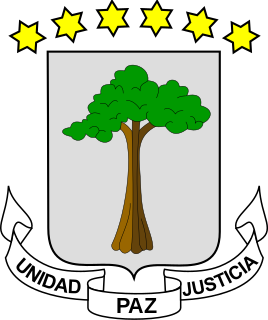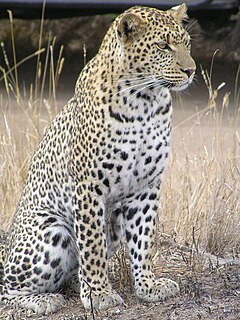Contents
Below is a list of museums in Equatorial Guinea .
Below is a list of museums in Equatorial Guinea .

Equatorial Guinea, officially the Republic of Equatorial Guinea, is a country on the west coast of Central Africa, with an area of 28,000 square kilometres (11,000 sq mi). Formerly the colony of Spanish Guinea, its post-independence name evokes its location near both the Equator and the Gulf of Guinea. As of 2021, the country had a population of 1,468,777.

The government's official policy is one of nonalignment. In its search for assistance to meet the goal of national reconstruction, the government of Equatorial Guinea has established diplomatic relations with numerous European and Third World countries. Having achieved independence under UN sponsorship, Equatorial Guinea feels a special kinship with that organization. It became the 126th UN member on November 12, 1968. Equatorial Guinea served as a non-permanent member on the United Nations Security Council from 2017 to 2019.

Malabo is the capital of Equatorial Guinea and the province of Bioko Norte. It is located on the north coast of the island of Bioko,. In 2018, the city had a population of approximately 297,000 inhabitants.

The Equatorial Guinea national football team represents Equatorial Guinea in men's international football and is controlled by the Equatoguinean Football Federation, a member of the Confederation of African Football (CAF).
ISO 3166-2:GQ is the entry for Equatorial Guinea in ISO 3166-2, part of the ISO 3166 standard published by the International Organization for Standardization (ISO), which defines codes for the names of the principal subdivisions of all countries coded in ISO 3166-1.

Articles related to Equatorial Guinea include:

The wildlife of Equatorial Guinea is composed of its flora and fauna.
The Equatorial Guinea women's national football team, nicknamed the Nzalang Femenino, has represented Equatorial Guinea in international women's football competition since 2000. It is controlled by the Equatoguinean Football Federation, the governing body for football in Equatorial Guinea.

Equatorial Guinea first participated at the Olympic Games in 1984, and has sent athletes to compete in every Summer Olympic Games since then. The nation has never participated in the Winter Olympic Games.

The following outline is provided as an overview of and topical guide to Equatorial Guinea:

The Ministry of Foreign Affairs, International Cooperation, and Francophone Affairs is a ministry of the Government of Equatorial Guinea. The current Minister is Simeón Oyono Esono Angue, appointed in 2018.

The vice president of Equatorial Guinea is the second highest political position obtainable in Equatorial Guinea. Following the 2011 constitutional reform, there is a provision for two vice presidents who are appointed by the president of Equatorial Guinea.
A museum is an institution that cares for (conserves) a collection of artifacts and other objects of artistic, cultural, historical, or scientific importance and makes them available for public viewing through exhibits that may be permanent or temporary. According to Museums of the World, there are about 55,000 museums in 202 countries. The International Council of Museums comprises 30,000 members in 137 countries.
The Museum of Modern Art Equatorial Guinea is a modern art museum in Malabo, the capital city of Equatorial Guinea.

The Equatorial Guinean passport is issued to citizens of the Equatorial Guinea for international travel.